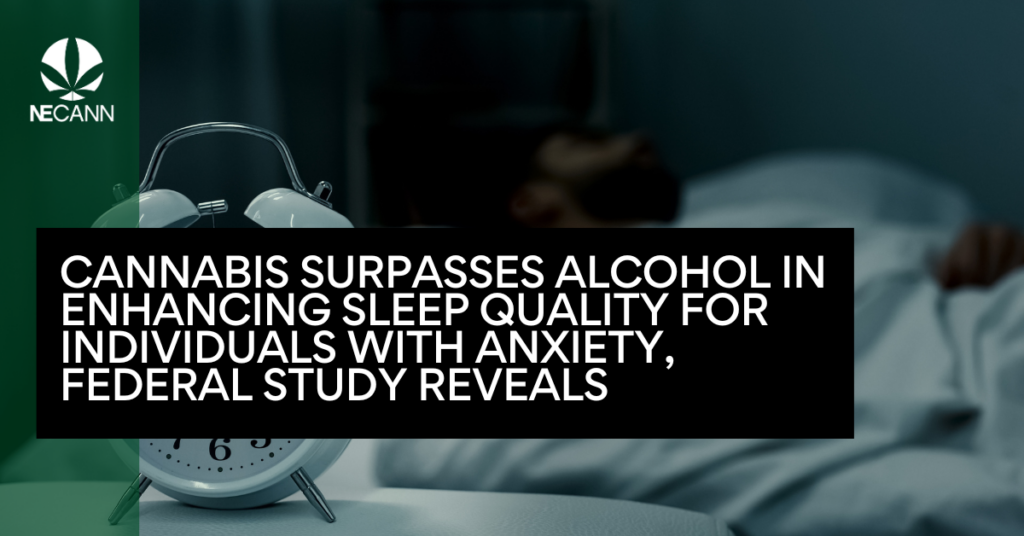A recent federally funded study, conducted by researchers from the University of Colorado, Colorado State University, and the University of Haifa, sheds light on the sleep-enhancing properties of cannabis for individuals managing anxiety. Published in the journal Drug and Alcohol Review, the study analyzed the subjective sleep quality of 347 participants who reported using cannabis to alleviate anxiety symptoms.
Participants engaged in a 30-day study, where they provided daily surveys detailing substance use and subjective sleep experiences. The study aimed to compare the impact of marijuana, alcohol, both, or neither on sleep quality.
The study revealed that participants reported better sleep quality on days when using cannabis alone or in combination with other substances, compared to non-use days. Interestingly, alcohol use alone did not show the same positive effect on sleep quality.
An intriguing correlation emerged between the frequency of marijuana and alcohol use and sleep outcomes. Participants who used substances more frequently reported higher sleep quality on cannabis-only days compared to those using both marijuana and alcohol less frequently.
The researchers confirmed their hypothesis about the positive impact of marijuana use alone on sleep quality. Cannabis-use-only and co-use days were linked to higher perceived sleep quality compared to non-use days. The study expanded on previous research, suggesting that more frequent use of alcohol and cannabis may moderate daily associations of cannabis use and sleep.
While both alcohol and cannabis have been associated with aiding sleep onset, the study supported existing findings that alcohol does not enhance overall sleep quality, especially when compared to cannabis.
Contrary to expectations, the study found that the sleep effects of cannabis did not weaken over time for individuals who reported more frequent use of marijuana and alcohol. Instead, frequent users experienced better sleep quality on cannabis-use days.
The study concludes by emphasizing the need for experimental studies on the effects of cannabis and alcohol on sleep. While the study provides valuable insights, questions remain regarding the impact of specific concentrations and cannabinoid profiles. Future clinical trials are recommended to delve deeper into these aspects.
The results of the study indicate that cannabis may exert positive effects on subjective sleep quality, particularly among individuals intending to use cannabis to cope with anxiety. The study highlights the potential benefits of cannabis in supporting sleep for those dealing with anxiety-related sleep issues.
As the cannabis landscape continues to evolve, research like this contributes valuable information about the potential positive impact of cannabis on sleep quality, especially for individuals managing anxiety-related challenges. The findings underscore the importance of further exploration in understanding the nuanced relationship between cannabis, alcohol, and sleep outcomes.
Subscribe to latest cannabis news. Stay informed, stay ahead.



